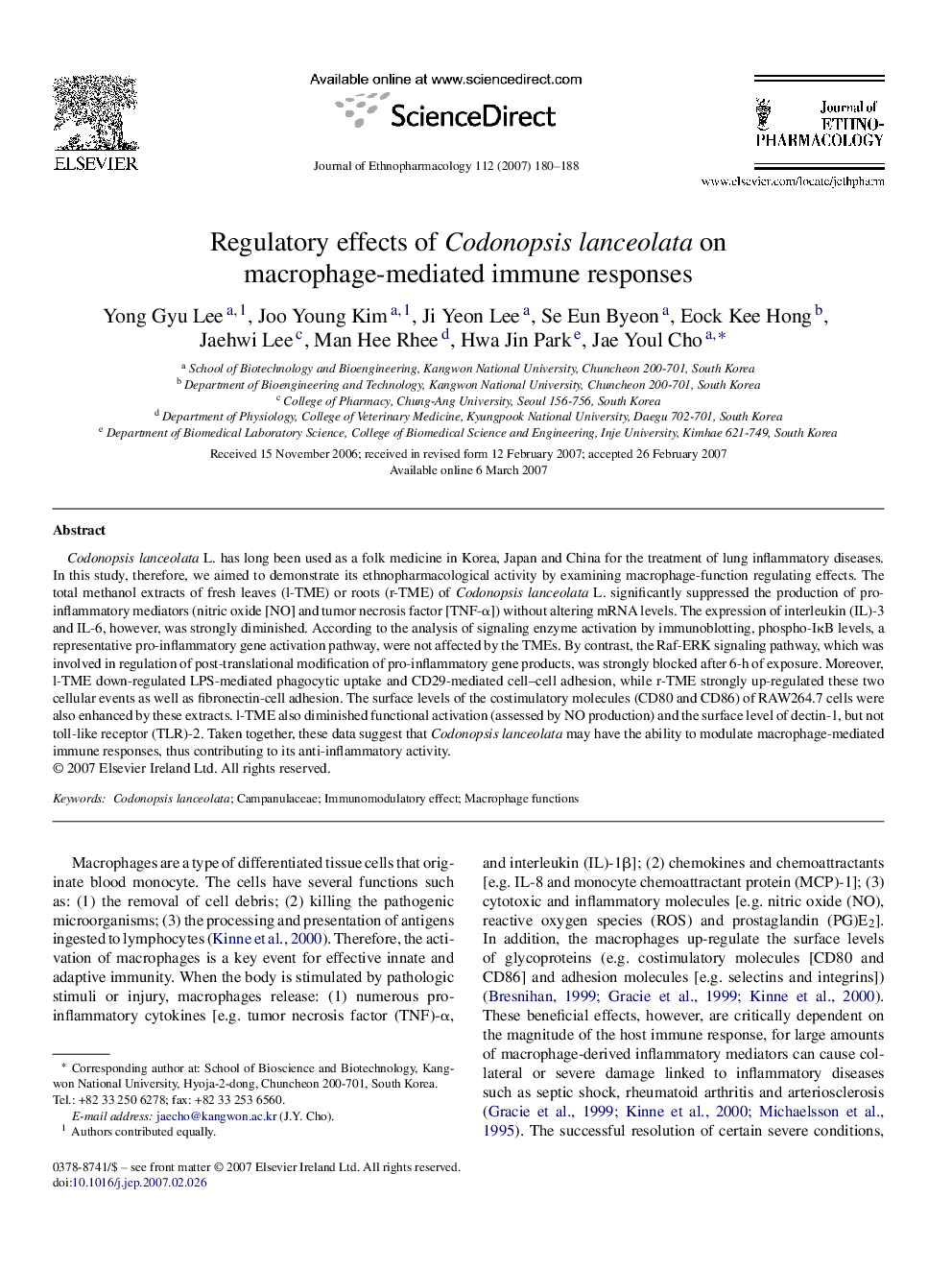| Article ID | Journal | Published Year | Pages | File Type |
|---|---|---|---|---|
| 2546929 | Journal of Ethnopharmacology | 2007 | 9 Pages |
Codonopsis lanceolata L. has long been used as a folk medicine in Korea, Japan and China for the treatment of lung inflammatory diseases. In this study, therefore, we aimed to demonstrate its ethnopharmacological activity by examining macrophage-function regulating effects. The total methanol extracts of fresh leaves (l-TME) or roots (r-TME) of Codonopsis lanceolata L. significantly suppressed the production of pro-inflammatory mediators (nitric oxide [NO] and tumor necrosis factor [TNF-α]) without altering mRNA levels. The expression of interleukin (IL)-3 and IL-6, however, was strongly diminished. According to the analysis of signaling enzyme activation by immunoblotting, phospho-IκB levels, a representative pro-inflammatory gene activation pathway, were not affected by the TMEs. By contrast, the Raf-ERK signaling pathway, which was involved in regulation of post-translational modification of pro-inflammatory gene products, was strongly blocked after 6-h of exposure. Moreover, l-TME down-regulated LPS-mediated phagocytic uptake and CD29-mediated cell–cell adhesion, while r-TME strongly up-regulated these two cellular events as well as fibronectin-cell adhesion. The surface levels of the costimulatory molecules (CD80 and CD86) of RAW264.7 cells were also enhanced by these extracts. l-TME also diminished functional activation (assessed by NO production) and the surface level of dectin-1, but not toll-like receptor (TLR)-2. Taken together, these data suggest that Codonopsis lanceolata may have the ability to modulate macrophage-mediated immune responses, thus contributing to its anti-inflammatory activity.
